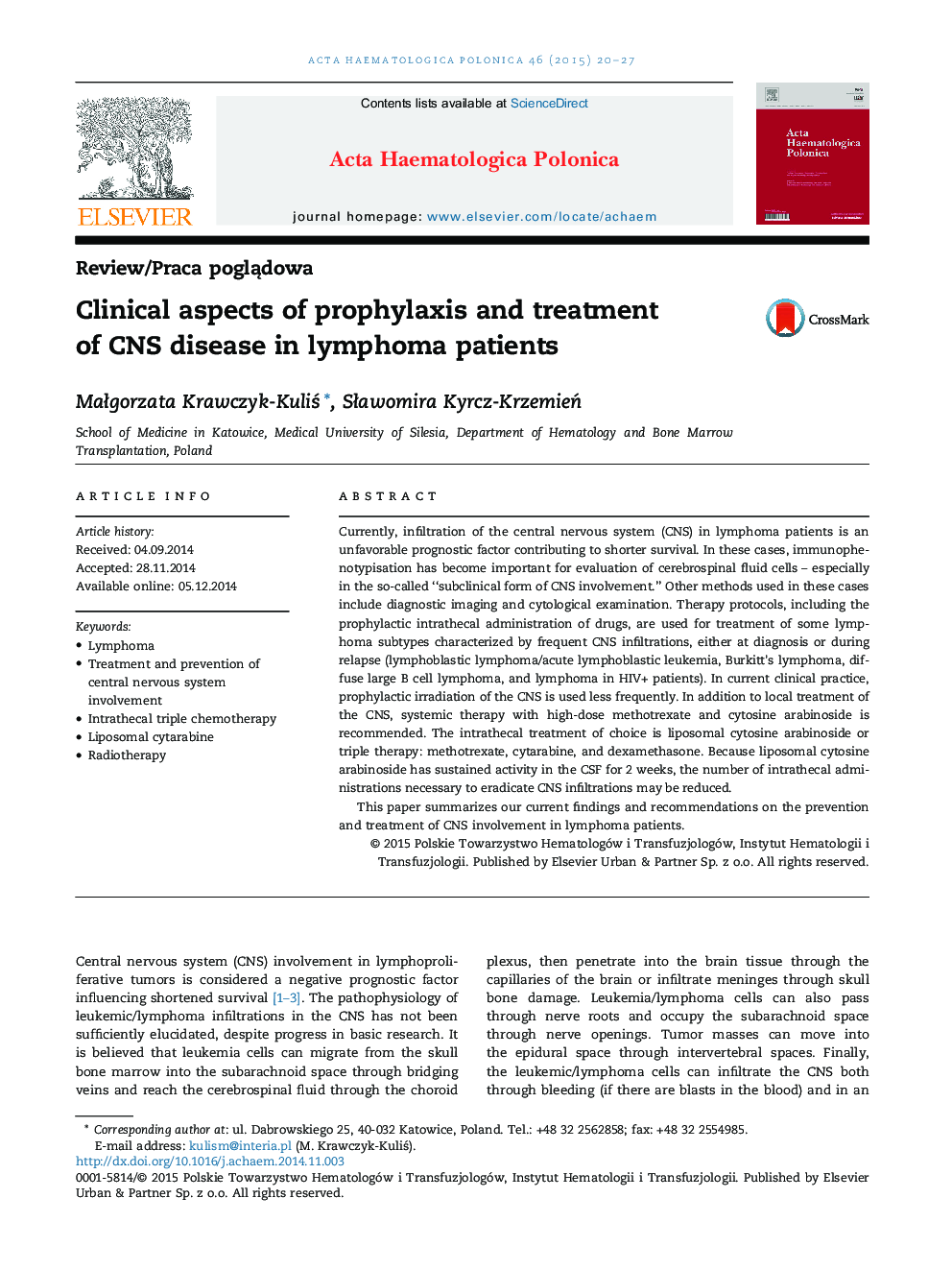| Article ID | Journal | Published Year | Pages | File Type |
|---|---|---|---|---|
| 3328124 | Acta Haematologica Polonica | 2015 | 8 Pages |
Currently, infiltration of the central nervous system (CNS) in lymphoma patients is an unfavorable prognostic factor contributing to shorter survival. In these cases, immunophenotypisation has become important for evaluation of cerebrospinal fluid cells – especially in the so-called “subclinical form of CNS involvement.” Other methods used in these cases include diagnostic imaging and cytological examination. Therapy protocols, including the prophylactic intrathecal administration of drugs, are used for treatment of some lymphoma subtypes characterized by frequent CNS infiltrations, either at diagnosis or during relapse (lymphoblastic lymphoma/acute lymphoblastic leukemia, Burkitt's lymphoma, diffuse large B cell lymphoma, and lymphoma in HIV+ patients). In current clinical practice, prophylactic irradiation of the CNS is used less frequently. In addition to local treatment of the CNS, systemic therapy with high-dose methotrexate and cytosine arabinoside is recommended. The intrathecal treatment of choice is liposomal cytosine arabinoside or triple therapy: methotrexate, cytarabine, and dexamethasone. Because liposomal cytosine arabinoside has sustained activity in the CSF for 2 weeks, the number of intrathecal administrations necessary to eradicate CNS infiltrations may be reduced.This paper summarizes our current findings and recommendations on the prevention and treatment of CNS involvement in lymphoma patients.
